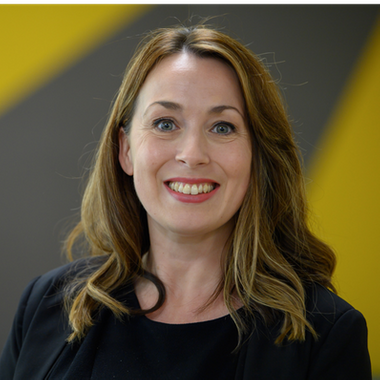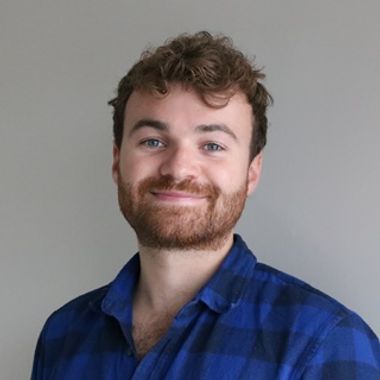In keeping with the conference theme, the focus of the 2024 Dragon’s Den pitches is “Innovate and Automate – the Digital Advantage”, where six cutting edge technologies will compete for the audience vote.
Rotating spiral bioreactor: a compact, high performance alternative to conventional bioreactors for biotechnological manufacturing - Esther Karunakaran
Bioreactors are at the heart of established biotechnological manufacturing processes. We have built a prototype and submitted for patenting the design of a compact, high performance, bioreactor. The unique advantages of our bioreactor technology are 1) its inherent potential to achieve scale up from the R&D lab to manufacturing in a single step, and 2) improved volumetric productivity. We envision that our bioreactor will be a powerful enabling technology that underpins not only increased productivity within existing biotechnological manufacturing processes but also will help environment-friendly, biotechnological manufacturing of new classes of chemicals previously considered too challenging to produce using conventional strategies, thus driving further growth in the sustainable manufacturing sector in the UK.
GyaniMed™: Revolutionizing Sustainable Drug Manufacturing with GenAI-Driven Knowledge Management - Swapnil Khadke
GyaniMed™ by IntelligenceQ is pioneering the use of Generative AI (GenAI) to transform knowledge management in sustainable drug manufacturing. The platform integrates cutting-edge AI with biopharmaceutical processes, enabling the seamless organization and retrieval of critical knowledge across research, development, and regulatory stages. By leveraging GenAI-powered insights and real-time collaboration, GyaniMed™ reduces inefficiencies, accelerates decision-making, and ensures sustainability in drug development. In this presentation, we will explore how GyaniMed™ empowers scientists and manufacturers to harness the full potential of their data, turning fragmented information into actionable knowledge to shorten drug development timelines and enhance operational efficiency. Join us to learn how generative AI is shaping the future of knowledge management in bioprocessing.
Visual intelligence: the missing piece of the science automation puzzle - Joe Mawby
How Lumi is streamlining data capture & analysis to accelerate R&D, improve compliance, and gain detailed insight into experiments, processes, and active protocol.
×

Laura Griffiths
Innovation Lead, Innovate UK
Laura joined the Transforming Medicines Manufacturing Team at Innovate UK in January 2021. As an Innovation Lead, Laura manages government funded projects, and engages with different organisations within the sector, to understand manufacturing challenges and the innovation needed to grow the UK’s medicines manufacturing economy. Laura is passionate that by working together, sharing knowledge, and driving innovation, the medicines manufacturing community can have a greater overall impact. Prior to joining Innovate UK Laura spent 7 years working for Eli Lilly and Elanco, as a technical and manufacturing leader, and 3 years working for a biologics contract manufacturing organisation, Eden Biodesign (currently Pharmaron). Laura has a BSc (Hons) in Biochemistry, and a PhD in Biotechnology, both from The University of Manchester. Laura’s technical scientific background is within upstream bioprocessing, with expertise in both mammalian and microbial cultures.
×

Caelan Anderson
Co-Founder and CEO, Tolemy Bio
Caelan Anderson is the co-founder and CEO of Tolemy Bio, driven by a deep passion for understanding and characterizing complex systems. With expertise in Physics, Data Science, and Software Engineering, he leverages these skills to solve intricate challenges in biotechnology. Caelan holds a degree in Physics from the University of Melbourne and began his career in defence technology, developing self-healing communication networks for the Australian Department of Defence.
At the cultivated meat startup Vow, he led the development of autonomous robotic systems for cell culture, built genome-scale metabolic models, and created advanced algorithms to accelerate cell-line development.
Before founding Tolemy Bio, Caelan successfully ran Apollo, a software company delivering innovative solutions across Europe and the Asia-Pacific region. At Tolemy, he now drives company strategy and operations, leading the development of cutting-edge technology while fostering a dynamic team.
×
Leo Chi U Seak
CEO and Lead Scientist, Genenet Technology Limited
Leo Chi U Seak is the CEO and Lead scientist of GeneNet Technology (UK), after getting his PhD (neuroscience) from the University of Cambridge.He co-founded GeneNet in the hope of helping the biotech industry to screen and produce drugs more efficiently. Leo is currently the project manager of Genenet’s CHO cell bioproduction (Funded by InnovateUK) and bioplastic bioproduction (Funded by ERDF) projects. Leo is also the inventor of the machine learning based genetic circuits used in the company, and he also has experience in leading research projects in the International Genetically Engineered Machine (iGEM) teams for years and has published multiple biotech papers.
×
Esther Karunakaran
Senior Lecturer/Associate Professor in Biological Engineering , The University of Sheffield
Esther Karunakaran is a Senior Lecturer/Associate Professor in Biological Engineering at the University of Sheffield. She is a molecular microbiologist with research interests in applying fundamental knowledge of microbial physiology and biofilm behaviour to overcome challenges in bioprocessing, environmental engineering and healthcare sectors. Together with her colleague, Dr. J. M. MacInnes, she is working towards delivering an innovative, compact, high performance bioreactor for the bioproduction of a wide variety of chemicals. They are exploring the possibility of setting up a spin-out company, Spironix, to manufacture and distribute these innovative bioreactors.
×

Swapnil Khadke
Co-Founder and CEO, IntelligenceQ
Dr. Swapnil Khadke is the Co-Founder and CEO of IntelligenceQ, where he leads a passionate effort towards transforming sustainable medicine manufacturing through advanced AI solutions. With over a decade of experience spanning pharmaceutical development, product management, and research, Dr. Khadke has been at the forefront of integrating AI into health sciences, always focusing on the practical needs of scientists and manufacturers. Under his leadership, IntelligenceQ's platform, GyaniMed™, bridges complex scientific data across research, design, and validation stages, offering scientists sophisticated yet accessible tools to advance medicine development effectively.
Previously, Dr. Khadke held pivotal roles in multiple early-stage TechBio startups, where he spearheaded projects involving micro-implant development for real-time health monitoring and innovative drug delivery systems targeting age-related disorders. He has a rich academic background with a Ph.D. in Health Sciences from Aston University and a Master’s in Pharmaceutics and Drug Design from UCL, complemented by various awards in scientific excellence from prestigious institutions like GSK and UKICRS.
Driven by a belief that AI, when applied thoughtfully, can dramatically enhance efficiency and collaboration, Dr. Khadke continues to advocate for accessible and cost-effective AI solutions that support the critical work of pharmaceutical scientists, ultimately accelerating the delivery of life-saving treatments.
×
Joe Mawby
REACH Industries
As a Business Development Manager at Reach Industries, I focus on the international expansion of Lumi, driving the growth of our Visual Intelligence and automation platform in new markets. My background in engineering, gives me a solid technical foundation as I work closely with our development teams and external partners to identify opportunities and develop strategies that scale our technology globally. By combining my technical expertise with a passion for building meaningful relationships, I ensure that Lumi’s AI-driven solutions reach scientists and businesses worldwide, helping them accelerate their work and drive innovation.
×

Alex Ward
Co-Founder and CSO, Tolemy Bio
Alex Ward is the co-founder and CSO of Tolemy Bio. Alex has a background in Cellular and Systems Biology, spanning diverse areas of academic and industry science, from heart disease to MRI Physics. He is driven by bringing together computational tools and novel technologies to answer complex biological questions.
Since completing his PhD at the University of Bristol, he has undertaken post-doctoral work at the Victor Chang Cardiac Research Institute in Sydney, Australia, specialising in congenital heart disease functional genomics. After which, he joined the cultivated meat startup, Vow, leading teams in large-scale tissue engineering and cell culture media development. At Vow, he was responsible for driving the development of cell culture media for diverse and exotic cell-lines, using bioinformatics, high-throughput suspension process development and big data analytics.
Since then, Alex has embarked on a journey into entrepreneurship, founding the boutique analytics consulting company, Arta Bioanalytics, and, more recently, Tolemy Bio. At Tolemy, Alex is focussed on business development, commercial activity and scientific team and infrastructure.







